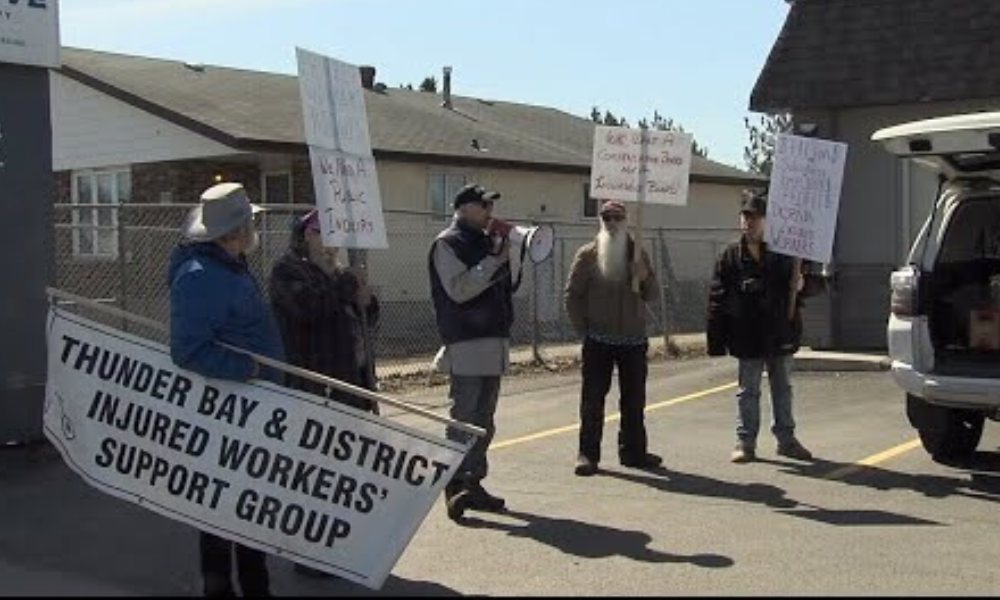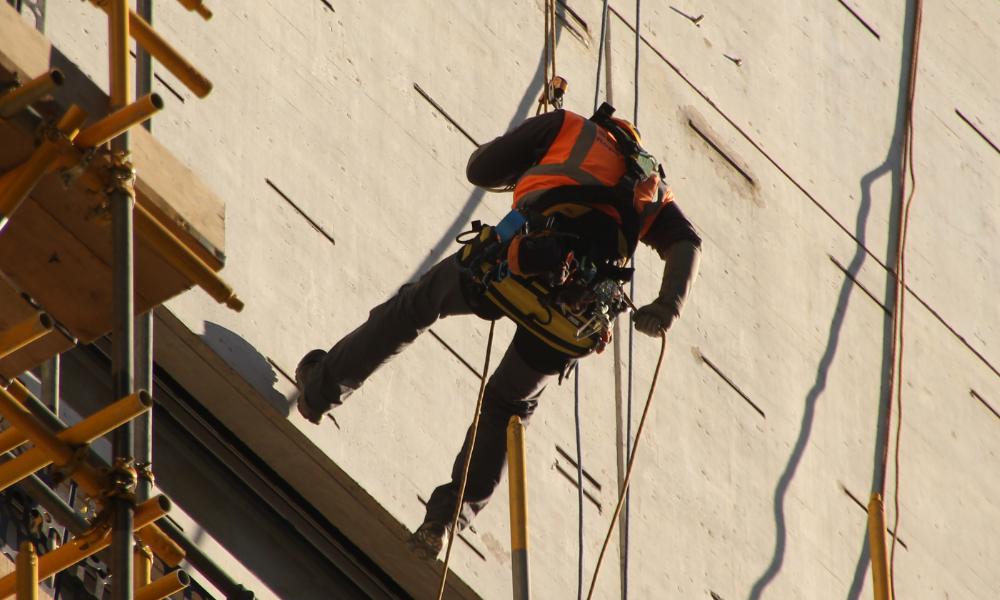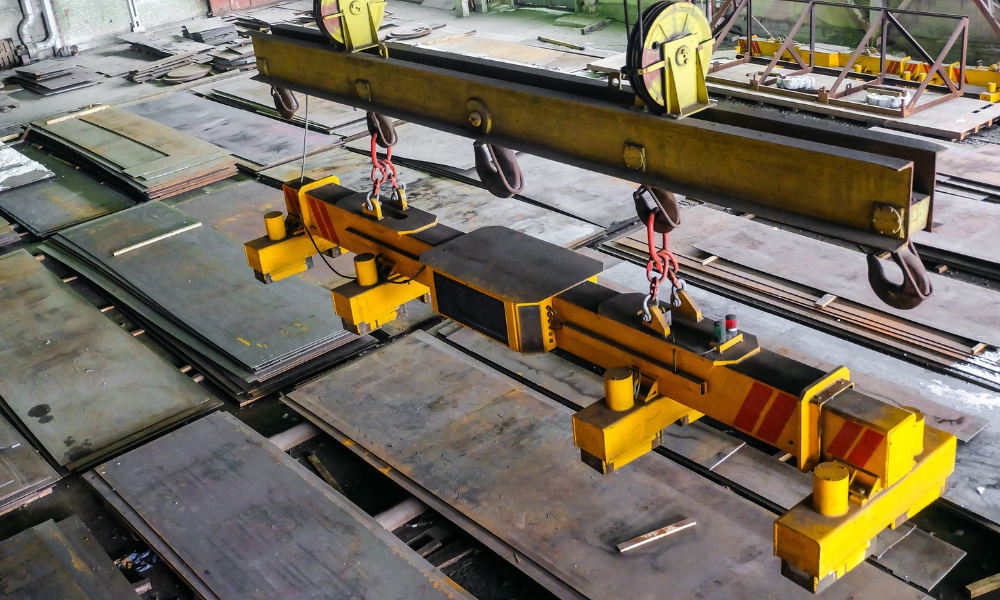On April 24, 2013, the Rana Plaza building, an eight-story commercial building in Dhaka, the capital of Bangladesh, collapsed. The search for the missing ended on May 13, 2013, with the death toll of 1,129. About 2,515 injured people were rescued from the building alive.
The Rana Plaza collapse is considered to be the deadliest garment factory accident in history, as well as the deadliest accidental structural failure in modern human history. According to the head of the Bangladesh Fire Service & Civil Defense, Ali Ahmed Khan, the upper four floors had been built without a permit.
The current evidence suggests the Rana Plaza was an illegally constructed building that passed several safety audits. Workers had voiced concerns regarding the cracks in the walls and were ordered to work with the threat of being fired. The quality of the “safety audits” were clearly suspect. Bangladesh does not necessarily lack occupational health and safety laws but it clearly lacks compliance and enforcement.
This tragedy has had an impact around the world. About 200,000 garment workers walked out of their jobs in Bangladesh, blocked roads and attacked factories outside the capital to demand a US$100 minimum monthly wage. The international community and organizations were campaigning for better and safer working conditions.
The day after the Rana Plaza building collapse, the Dhaka city development authority commenced a prosecution against the owners of the building and the garment factories operating inside it. Sohel Rana, the building owner, is currently in prison awaiting trial along with several owners of the factories.
On June 10, 2013, seven building inspectors were suspended and accused of negligence for renewing the licences of the garment factories in the building that collapsed.
At a meeting of retailers and non-governmental organizations (NGOs) one week after the collapse, a new Accord on Factory and Building Safety in Bangladesh was established. The agreement expands on a previous accord signed only by the United States-based PVH, which owns Calvin Klein, and German retailer Tchibo.
The accord was signed May 13, 2013, as an independent agreement designed to make all garment factories in Bangladesh safe workplaces. The accord is a legally binding agreement, for a commitment of five years, signed by more than 150 apparel corporations from 20 countries, two global trade unions and numerous Bangladesh agencies. The International Labour Organization (ILO) acts as the independent chair. Loblaws Canada was one of the first corporations to sign the accord.
Signatory firms fund the accord’s initiatives with contributions based on a company’s volume of sourcing from Bangladesh relative to the annual volume of other companies. Annual rates may range from $1,000 to $500,000. The accord has a budget of $9 million to cover administration costs, including inspections, worker training and a complaint hotline.
The appointed chief safety inspector responsible to lead the team that will inspect 1,500 factories in 2014 is Canadian Brad Loewen. He is a fire protection engineer who was the administrator of commercial plan examination and inspections for the City of Winnipeg.
The key areas of investigation for the accord team and inspectors are fire protection, electrical hazards and safety, and structural integrity. Key issues that have been discovered since inspections began in February 2014 involve buildings that were constructed differently than the original design and fail to meet Bangladesh National Building Code, and unsafe fire exit routes that encourage the spread of fire due to the design of stairwells. Inspectors have been hired from around the world. Between 75 and 80 staff will be hired under the accord to help factories with followup in establishing new systems that would include health and safety committees in the factories. About 15 other North American companies refused to sign the accord as the deadline passed, citing liability concerns over class-action lawsuits.
As of mid-September 2013, compensation to families of disaster victims was still under discussion, with many families struggling to
survive after having lost a major wage earner. Families who received the $200 compensation from retailer Primark — whose supplier was based in Rana Plaza — were only those who were able to provide DNA evidence of their relative’s death in the collapse, something which proved extremely difficult.
The United States government provided DNA kits to the families of victims. Of the 29 brands identified as having sourced products from the Rana Plaza factories, only nine attended meetings held in November 2013 to agree to a proposal on compensation for the victims.
Working conditions must be addressed
The accord focuses only on the structure of buildings and fire safety. The accord does not focus on working conditions or child labour, which continue to be concerns. Bangladesh garment factories producing clothes for British retailers are forcing girls as young as 13 to work up to 11 hours per day in appalling conditions. This is despite rules that children under 18 can only work five hours.
The United Nations Global Compact is a worldwide initiative that stands for an international network of businesses and stakeholders promoting sustainable development and social commitment. It was launched by then UN general secretary Kofi Annan in 1999.
The Global Compact provides a framework for businesses that is based on 10 principles in the area of human rights, labour, environment and anti-corruption. Since its official launch, the initiative has grown to more than 10,000 participants, including more than 7,000 businesses in 145 countries around the world.
The UN Global Compact is not legally binding on the participants. The whole participation is based on voluntary partnership, including
compliance with the 10 principles. The Global Compact does not include any legal consequences for businesses that do not fulfill their aims to implement the principles. Its only recourses are the possibility to remove from the list of active participants those businesses that do not communicate their progress in an annual report and terminate participation in the case of a second default.
Bangladesh now has more than 5,000 garment factories employing more than 4.5 million workers — the largest employment sector in Bangladesh. Many of the workers are women (about 90 per cent), and advocates credit the industry for lifting people out of poverty, even with such low wages. Exports also provide a critical source of foreign exchange that helps the government offset the high costs of imported oil. The garment factories generate 80 per cent of Bangladesh’s $24 billion annual exports.
The enormity of the Rana Plaza disaster may have woken the world up to the plight of many garment industry workers in the emerging world who have sub-standard working conditions. The laws and compliance of the developed world in health and safety legislation and enforcement can be a model to benefit to emerging economies to reduce risk, prevent accidents and save lives.
Norm Keith is a partner at Toronto-based law firm Fasken Martineau DuMoulin LLP. He specializes in occupational health and safety, environmental, workers' compensation, and workplace risk management litigation. He advises and represents clients in regulatory and corporate criminal investigations and charges. Norm received his Canadian Registered Safety Professional (CRSP) designation in 1998, making him the first practising lawyer in Canada to achieve the CRSP designation.
The Rana Plaza collapse is considered to be the deadliest garment factory accident in history, as well as the deadliest accidental structural failure in modern human history. According to the head of the Bangladesh Fire Service & Civil Defense, Ali Ahmed Khan, the upper four floors had been built without a permit.
The current evidence suggests the Rana Plaza was an illegally constructed building that passed several safety audits. Workers had voiced concerns regarding the cracks in the walls and were ordered to work with the threat of being fired. The quality of the “safety audits” were clearly suspect. Bangladesh does not necessarily lack occupational health and safety laws but it clearly lacks compliance and enforcement.
This tragedy has had an impact around the world. About 200,000 garment workers walked out of their jobs in Bangladesh, blocked roads and attacked factories outside the capital to demand a US$100 minimum monthly wage. The international community and organizations were campaigning for better and safer working conditions.
The day after the Rana Plaza building collapse, the Dhaka city development authority commenced a prosecution against the owners of the building and the garment factories operating inside it. Sohel Rana, the building owner, is currently in prison awaiting trial along with several owners of the factories.
On June 10, 2013, seven building inspectors were suspended and accused of negligence for renewing the licences of the garment factories in the building that collapsed.
At a meeting of retailers and non-governmental organizations (NGOs) one week after the collapse, a new Accord on Factory and Building Safety in Bangladesh was established. The agreement expands on a previous accord signed only by the United States-based PVH, which owns Calvin Klein, and German retailer Tchibo.
The accord was signed May 13, 2013, as an independent agreement designed to make all garment factories in Bangladesh safe workplaces. The accord is a legally binding agreement, for a commitment of five years, signed by more than 150 apparel corporations from 20 countries, two global trade unions and numerous Bangladesh agencies. The International Labour Organization (ILO) acts as the independent chair. Loblaws Canada was one of the first corporations to sign the accord.
Signatory firms fund the accord’s initiatives with contributions based on a company’s volume of sourcing from Bangladesh relative to the annual volume of other companies. Annual rates may range from $1,000 to $500,000. The accord has a budget of $9 million to cover administration costs, including inspections, worker training and a complaint hotline.
The appointed chief safety inspector responsible to lead the team that will inspect 1,500 factories in 2014 is Canadian Brad Loewen. He is a fire protection engineer who was the administrator of commercial plan examination and inspections for the City of Winnipeg.
The key areas of investigation for the accord team and inspectors are fire protection, electrical hazards and safety, and structural integrity. Key issues that have been discovered since inspections began in February 2014 involve buildings that were constructed differently than the original design and fail to meet Bangladesh National Building Code, and unsafe fire exit routes that encourage the spread of fire due to the design of stairwells. Inspectors have been hired from around the world. Between 75 and 80 staff will be hired under the accord to help factories with followup in establishing new systems that would include health and safety committees in the factories. About 15 other North American companies refused to sign the accord as the deadline passed, citing liability concerns over class-action lawsuits.
As of mid-September 2013, compensation to families of disaster victims was still under discussion, with many families struggling to
survive after having lost a major wage earner. Families who received the $200 compensation from retailer Primark — whose supplier was based in Rana Plaza — were only those who were able to provide DNA evidence of their relative’s death in the collapse, something which proved extremely difficult.
The United States government provided DNA kits to the families of victims. Of the 29 brands identified as having sourced products from the Rana Plaza factories, only nine attended meetings held in November 2013 to agree to a proposal on compensation for the victims.
Working conditions must be addressed
The accord focuses only on the structure of buildings and fire safety. The accord does not focus on working conditions or child labour, which continue to be concerns. Bangladesh garment factories producing clothes for British retailers are forcing girls as young as 13 to work up to 11 hours per day in appalling conditions. This is despite rules that children under 18 can only work five hours.
The United Nations Global Compact is a worldwide initiative that stands for an international network of businesses and stakeholders promoting sustainable development and social commitment. It was launched by then UN general secretary Kofi Annan in 1999.
The Global Compact provides a framework for businesses that is based on 10 principles in the area of human rights, labour, environment and anti-corruption. Since its official launch, the initiative has grown to more than 10,000 participants, including more than 7,000 businesses in 145 countries around the world.
The UN Global Compact is not legally binding on the participants. The whole participation is based on voluntary partnership, including
compliance with the 10 principles. The Global Compact does not include any legal consequences for businesses that do not fulfill their aims to implement the principles. Its only recourses are the possibility to remove from the list of active participants those businesses that do not communicate their progress in an annual report and terminate participation in the case of a second default.
Bangladesh now has more than 5,000 garment factories employing more than 4.5 million workers — the largest employment sector in Bangladesh. Many of the workers are women (about 90 per cent), and advocates credit the industry for lifting people out of poverty, even with such low wages. Exports also provide a critical source of foreign exchange that helps the government offset the high costs of imported oil. The garment factories generate 80 per cent of Bangladesh’s $24 billion annual exports.
The enormity of the Rana Plaza disaster may have woken the world up to the plight of many garment industry workers in the emerging world who have sub-standard working conditions. The laws and compliance of the developed world in health and safety legislation and enforcement can be a model to benefit to emerging economies to reduce risk, prevent accidents and save lives.
Norm Keith is a partner at Toronto-based law firm Fasken Martineau DuMoulin LLP. He specializes in occupational health and safety, environmental, workers' compensation, and workplace risk management litigation. He advises and represents clients in regulatory and corporate criminal investigations and charges. Norm received his Canadian Registered Safety Professional (CRSP) designation in 1998, making him the first practising lawyer in Canada to achieve the CRSP designation.






